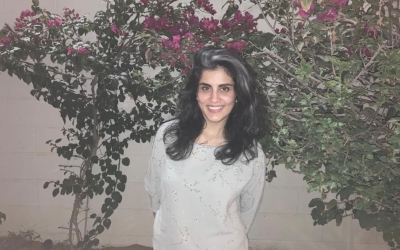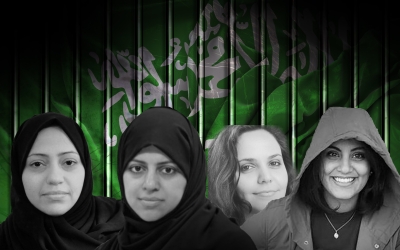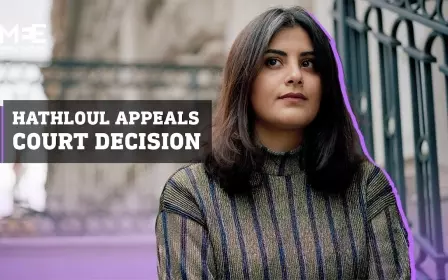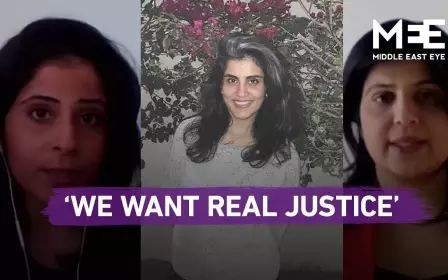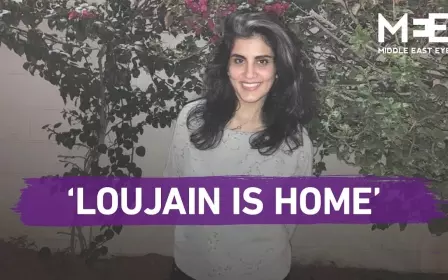Saudi Arabia: Loujain al-Hathloul's sentence upheld at appeals hearing
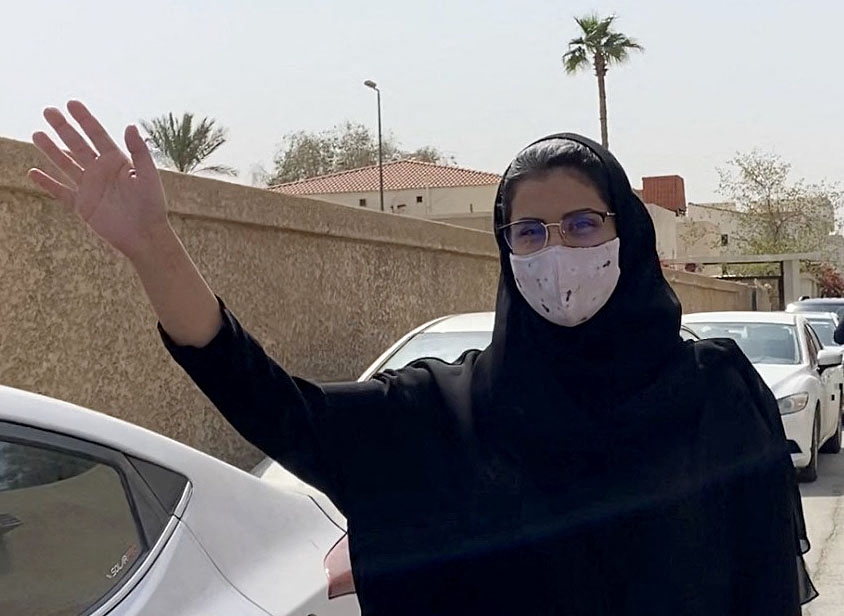
A Saudi court has upheld the original sentence of activist Loujain al-Hathloul, who had championed the right for women to drive and for an end to Saudi Arabia's male guardianship system.
Hathloul was sentenced in December to nearly six years in prison under broad cybercrime and counterterrorism laws after a lengthy trial that drew widespread international condemnation, but she was released last month having served half of her custodial sentence since her detention in 2018.
Walking to the courthouse on Wednesday morning before the appeal hearing, Hathloul, 31, told reporters she hoped Riyadh's Special Criminal Court would amend her sentence - her first public comments since her 2018 arrest.
The court, however, ruled that it would stand, Reuters reported.
Hathloul was detained in May 2018 and sentenced in December 2020 to nearly six years in prison on charges that United Nations rights experts called spurious.
The court suspended two years and 10 months of her sentence, most of which had already been served.
However, Hathloul, whose release is conditional, remains under a five-year travel ban.
According to reports from rights groups and family members, Hathloul faced sexual harassment and torture while in prison.
In an interview with CNN, Loujain’s brother, Walid al-Hathloul, said that Saud al-Qahtani, a top adviser to the crown prince who has been implicated in the murder of Saudi journalist Jamal Khashoggi, oversaw his sister's torture and threatened to rape her.
Lina al-Hathloul, Loujain's sister, tweeted on Wednesday that the court's decision effectively meant that Saudi Arabia considered the UK, the EU and the Netherlands as “terrorist entities” and contacting them a “terrorist act”.
Guardianship system
Hathloul rose to prominence in 2013 when she began publicly campaigning for the right for women to drive in Saudi Arabia.
Saudi law had previously banned women from driving but it was changed in June 2018, allowing them to do so.
Hathloul was arrested for the first time in 2014 while attempting to drive across the border from the United Arab Emirates, where she had a valid driver's licence, to Saudi Arabia.
She spent 73 days in a women's detention facility, an experience she later said helped shape her campaigning against the kingdom's male guardianship system.
Under the heavily criticised system, every woman is assigned a male relative - a father, brother, husband or son - whose approval is needed for various big decisions throughout their life.
More detainees
News of Hathloul’s release last month on probation was widely celebrated online, however many women who campaigned for women’s rights in the kingdom still languish behind bars.
Like Hathloul, many were detained around the time Saudi Arabia lifted its ban on women driving on 24 June 2018.
Among those still imprisoned are Eman al-Nafjan, who regularly spoke about feminism in Saudi society and contributed opinion pieces to CNN, the Guardian and Foreign Policy.
Nafjan started a blog in 2018, in which she expressed her views on the campaign to allow women to drive as well as other women’s rights issues, Saudi anti-terrorism laws and human rights activists in the kingdom.
Also still detained is Samar Badawi, the sister of imprisoned Saudi blogger Raif Badawi, who was arrested on 30 July 2018.
Badawi was known for her work defending human rights and was among the first to bring forward a lawsuit demanding that women be allowed to vote and stand as candidates in municipal elections taking place in 2011.
No action against crown prince
US President Joe Biden's administration has urged Riyadh to release political prisoners including women's rights activists.
However, the administration itself has been accused of hypocrisy following a newly released summary of an intelligence report that blames Saudi Crown Prince Mohammed bin Salman for the killing of Khashoggi.
Last month, the US State Department unveiled new visa restrictions dubbed the "Khashoggi ban" that would allow Washington to target "individuals who, acting on behalf of a foreign government, are believed to have been directly engaged in serious, extraterritorial counter-dissident activities".
However, Secretary of State Antony Blinken confirmed that Washington would not be taking action against the crown prince himself.
Saudi government agents murdered Khashoggi and dismembered his body at the kingdom's consulate in Istanbul, while he was trying to retrieve personal paperwork, in October 2018.
Middle East Eye delivers independent and unrivalled coverage and analysis of the Middle East, North Africa and beyond. To learn more about republishing this content and the associated fees, please fill out this form. More about MEE can be found here.


